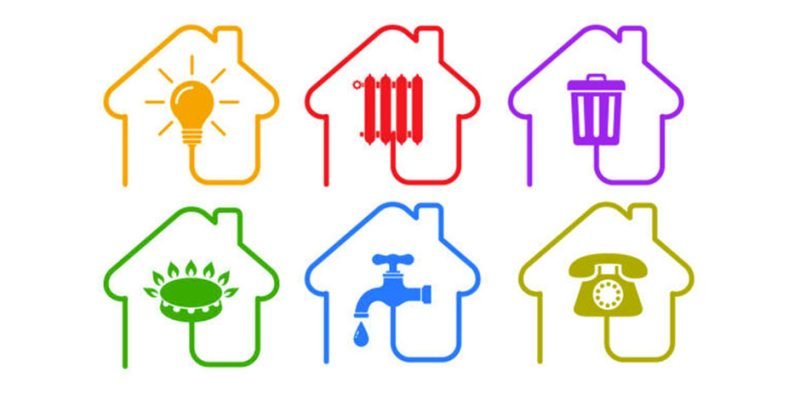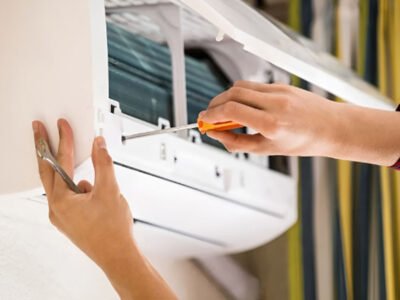Every household uses a certain amount of energy every day. Energizing your household and its appliances can be confusing. Therefore, there are guides explaining average everyday household energy usage. These guides explain how much energy you use in your household, and where it is used.
Energizing your household is not just confusing but also expensive, depending on your appliances and habits. A guide to saving on your everyday average household energy usage will definitely be a handy tool to have. Not only will it lessen your energy usage, but also decrease the amount displayed on your energy bill.
You can spend a lot less money on your energy usage by maximizing energy efficiency in your household. Knowing where and how you use too much energy in your household will set you on the right path to start changing your energizing habits. Understanding your energy bill is also a very important aspect.
Average Household Energy Usage
In order to determine your household energy usage, it is important to understand how energy is measured. Energy is measured in kilowatt-hours (kWh), and a kilowatt is 1000 watts. A kilowatt hour equals the same amount of energy you would use if you had a 1000-watt appliance running for an hour. The amount of kWh an appliance uses depends on how long it would take it to use 1kWh. For example, a 200-watt appliance would take 5 hours to use 1kWh. There are appliances that use a lot more energy than others.
The average household in the UK uses between 8 and 10 kWh a day. Although, this is only an estimated figure, as there are many factors that influence your household’s energy usage. These factors include:
- The size of your home. The size and surface area of your house is one of the biggest average energy consumption determining factors. Every house has a different number of rooms and layout, therefore having different energy requirements. The bigger your house, the bigger your energy usage will be.
- The number of devices. You use a lot of devices every day. If they are left on standby the entire time, your electricity bill will be higher. Appliances that are necessary and add to your energy costs include heating controls, laptops, lighting, and kitchen appliances.
- Cavity wall insulation. If your house’s wall cavities are not insulated it leads to heat loss and air leaks. This will increase the amount of energy you use to heat your house, increasing your energy bill as well.
- Construction date. Your house’s age determined how energy efficient it is. If it is older, you will use more energy to run your household.
- Your lifestyle. Another one of the biggest factors influencing energy consumption is your lifestyle. Your average energy consumption will be determined by the amount of energy you use on a daily basis.
- The people around you. The more people there are in your household, or even visiting, the more appliances will be used and for longer. More people directly equal more energy usage.
- Meter type. A smart meter relays the amount of energy you used directly to your energy supplier, giving an exact reading. Older meters, where either you or the supplier have to get the readings manually, mostly use average readings instead of exact ones. This has a big impact on your energy bill.
Household Energy Efficiency
There are different ways that you can make your home more energy efficient. There are “Set it and forget it” actions that are one-off, quick-fix actions. This will immediately reduce energy usage, and usually cost you nothing. This includes lowering your water temperature. “Every day small actions” are low-effort actions that propose changes to how you use appliances in your house on a regular basis, and are typically free. You can turn down radiators in unoccupied rooms. “Basic home improvements” outline small improvements to help make your house more energy efficient. It requires low-cost installations that will reduce energy bills. An example is changing light bulbs to more energy-efficient ones, like LED bulbs. “Larger home improvements” suggest bigger changes to your home. These actions require more upfront costs and will reduce energy consumption for many years. An example is installing loft insulation or double-glazed windows. Some changes depend on the season.
In the winter you can keep your home at a comfortable temperature of 19 degrees by turning down the thermostat just one degree. This temperature should still naturally heat your home and supply warm air. This will reduce heat loss and your heating bill. Install or upgrade heating controls on your water boiler, without replacing the entire unit. Smart thermostatic radiator valves, programmes, and controls are a good investment. Smart meters will help you to keep track of your energy usage and find ways to reduce more energy. Closing your curtains at night will keep heat from escaping through badly insulated windows. Switch your appliances to Eco Mode to limit energy usage. When buying new appliances, try to buy eco-friendly ones. When you aren’t using a device, switch it off instead of leaving it on standby. Replace traditional light bulbs with LED bulbs. Invest in professional draught proofing to reduce draughts.
In the summer months, you have to watch your water usage and temperature. Reduce water temperature, wash clothes at lower temperatures, and shower instead of bathing. Keep warm air out of your home by closing doors and windows during the day. Use fans to keep the air inside cool. You have to use fans wisely. Place the fan on the floor to circulate cooler air, rather than the warm air that is closer to the ceiling. At night you can open windows and doors, and turn off fans. Use natural lighting during the day, and LED light at night. LED bulbs emit less heat than traditional bulbs and are more energy efficient. Unplug appliances that you’re not using, especially those that emit heat. Replace air filters for optimum usage. Invest in a smart thermostat. Try to use the oven as little as possible by making food that doesn’t require cooking.
Conclusion
This article serves as a guide to average household energy usage. It gives the average household energy usage, as well as how it can be calculated. Different ways to make your household more energy efficient are given as well. These include simple and easy changes, as well as small and large investments. Seasonal changes that you can make are also discussed.














Comments